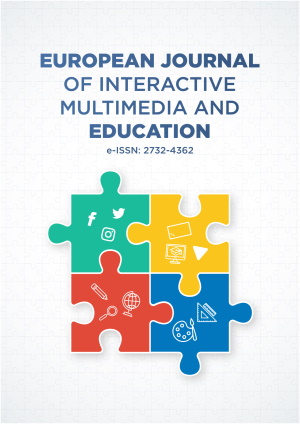Volume 1, Issue 2, July 2020
Research Article
Online News Media Framing of COVID-19 Pandemic: Probing the Initial Phases of the Disease Outbreak in International Media
EUR J INTERACT MULTIMED ED, Volume 1, Issue 2, July 2020, Article No: e02006
https://doi.org/10.30935/ejimed/8402Review Article
Self-Regulated Learning In A Massive Open Online Course: A Review of Literature
EUR J INTERACT MULTIMED ED, Volume 1, Issue 2, July 2020, Article No: e02007
https://doi.org/10.30935/ejimed/8403Research Article
Arab Pre-service Teachers’ Perspectives on the Role of ICT in Learning and beyond School
EUR J INTERACT MULTIMED ED, Volume 1, Issue 2, July 2020, Article No: e02008
https://doi.org/10.30935/ejimed/9138Research Article
Effects of In Service Chemistry Teachers’ Technological Pedagogical Content Knowledge on Students’ Scientific Attitude and Literacy in Southwestern Nigerian Secondary Schools
EUR J INTERACT MULTIMED ED, Volume 1, Issue 2, July 2020, Article No: e02009
https://doi.org/10.30935/ejimed/9306
